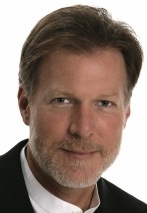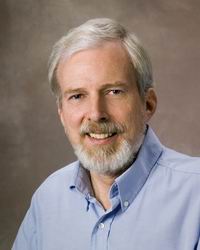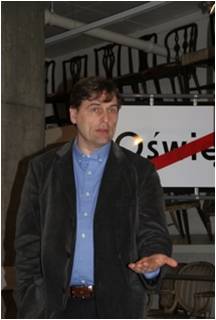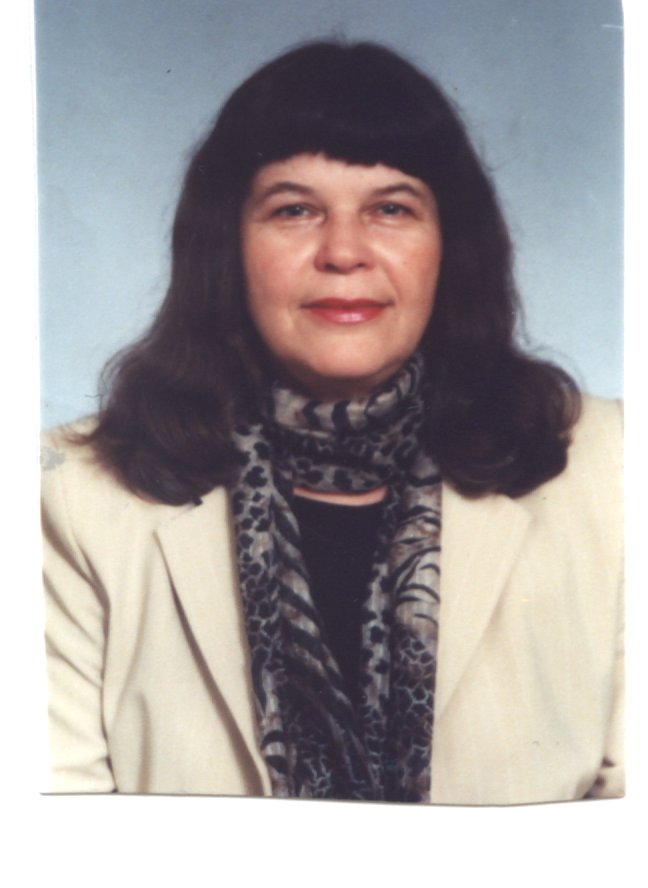Welcome everyone to the fifth post in our behind the scenes series with a preview of the fabulous EMCSR 2014 themes. On this occasion we would like to present some of the participants in the Complexity and Strategy theme, including valuable background information about them, links for further reading, and interesting interviews.
 Gary Metcalf is the EMCSR 2014 Complexity and Strategy theme chair. He is currently the president of the International Federation for Systems Research (IFSR). He has served on the IFSR Executive Committee since 2002, and is past president of the International Society for the Systems Sciences (ISSS). He is a full-time faculty member in the Graduate School of Management at Sullivan University, teaches half-time in the School of Organizational Leadership and Transformation at Saybrook University, and teaches part-time for Aalto University in Finland. He maintains a consulting practice through InterConnections, LLC.
Gary Metcalf is the EMCSR 2014 Complexity and Strategy theme chair. He is currently the president of the International Federation for Systems Research (IFSR). He has served on the IFSR Executive Committee since 2002, and is past president of the International Society for the Systems Sciences (ISSS). He is a full-time faculty member in the Graduate School of Management at Sullivan University, teaches half-time in the School of Organizational Leadership and Transformation at Saybrook University, and teaches part-time for Aalto University in Finland. He maintains a consulting practice through InterConnections, LLC.
 Stuart Umpleby is a professor in the Department of Management and Director of the Research Program in Social and Organizational Learning in the School of Business at George Washington University. He received degrees in engineering, political science, and communications from the University of Illinois in Urbana-Champaign. He teaches courses in the philosophy of science, cross-cultural management, organizational behavior, cybernetics, and systems science. Other interests include process improvement methods, group facilitation methods, and the use of computer networks.
Stuart Umpleby is a professor in the Department of Management and Director of the Research Program in Social and Organizational Learning in the School of Business at George Washington University. He received degrees in engineering, political science, and communications from the University of Illinois in Urbana-Champaign. He teaches courses in the philosophy of science, cross-cultural management, organizational behavior, cybernetics, and systems science. Other interests include process improvement methods, group facilitation methods, and the use of computer networks.
Stuart is co-chairing the symposium on “Country development in a time of globalization.” In his own words: “The world is presently passing through a period of dramatic change in social systems. People in many countries are demanding increased participation in governance and more rule of law. Social media such as Twitter, Facebook and access to information via the internet are aiding these efforts. One could say that a “cybernetic society” is taking shape before our eyes.”
 Søren Brier is Professor of Semiotics of Information, Cognition and Communication Sciences at the Centre for International Business Communication Studies at Copenhagen Business School, where he has been teaching philosophy of science as well as semiotics in five different communication programs. His research interest focusses on the transdisciplinary foundation of the interplay between cybernetic and systemic information science and Peircean triadic semiotics and its modern development as a part of biosemiotics.
Søren Brier is Professor of Semiotics of Information, Cognition and Communication Sciences at the Centre for International Business Communication Studies at Copenhagen Business School, where he has been teaching philosophy of science as well as semiotics in five different communication programs. His research interest focusses on the transdisciplinary foundation of the interplay between cybernetic and systemic information science and Peircean triadic semiotics and its modern development as a part of biosemiotics.
At the EMCSR 2014 he serves as symposium chair on “Transdisciplinary responses to global challenges,” about which he says: “A major global challenge is to prevent war among cultures by making the qualitative and quantitative sciences integrate their work and from the limitations of that enter into a dialogue with the core inquiry of all religions.”
 Iryna Dobronravova is the Chair of the Philosophy and Methodology of Science division at Kyiv Shevchenko University.
Iryna Dobronravova is the Chair of the Philosophy and Methodology of Science division at Kyiv Shevchenko University.
She works in the field of the philosophy of science, and in particular in the area of the philosophical foundations of synergetics. Over the last few years she has focused her interests on research in the area of complexity studies.
Iryna was Head of the Ukrainian team on the INTAS project called “Human Strategies in Complexity.” She is the President of the Ukrainian Synergetic Society, and a member of the Bertalanffy Centre for the Study of Systems Science.
She is the symposium chair of “Crossroads of civilization from a synergetic point of view,” and in her own words, she says: “We are going to consider not only a synergetic view on civilization crossroad of Ukraine (Dobronravova), but also the evaluation of possible scenarios of the development of our civilization while actively trying to realize desirable options and to block those of destructive and inhuman nature (Melkov). Multidimensional thinking as a way of exploring complexity in face of civilization challenges (Bogataya), synergetic methodology foundation for sustainable development (Astafjeva) and individual social responsibility (Volik) are also our topics.”



